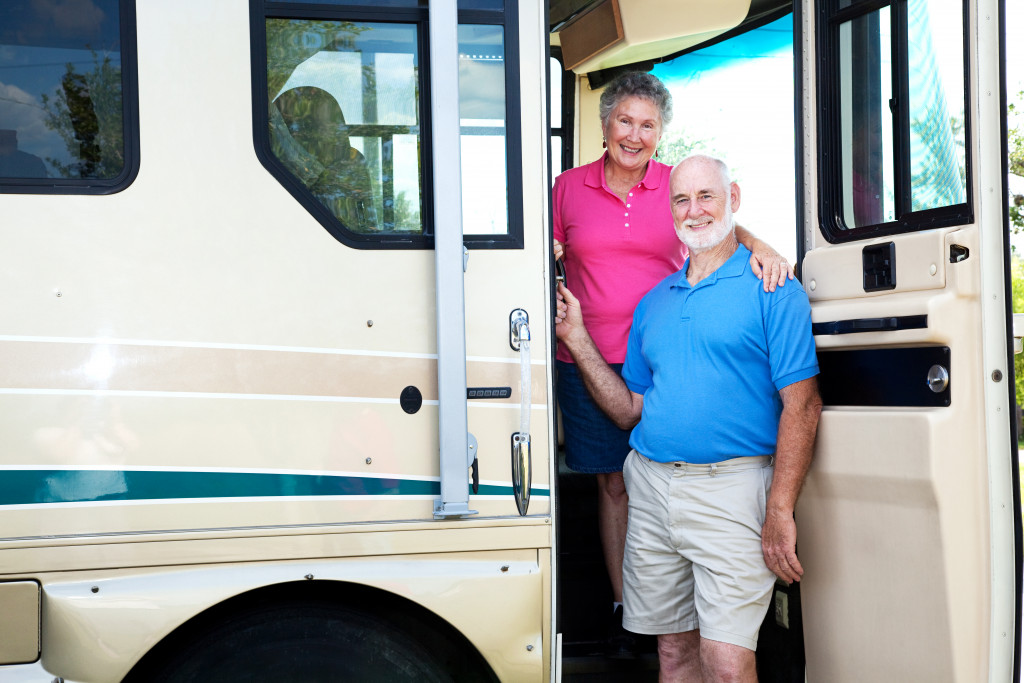Traveling with an elderly companion can be a rewarding experience. You can help them see new places and enjoy the sights and sounds of different cultures. But there are also a few things you should keep in mind to make sure the trip goes as smoothly as possible. A road trip, in particular, can be a great way to get out and see the country, but you’ll need to prepare for some logistical challenges.
1. Consider your companion’s physical abilities.
An elderly person may not be able to walk long distances or carry heavy bags. They may also not be able to sit in a car for an extended period. Make sure you take your companion’s physical abilities into account when planning the trip so that you don’t push them too hard.
Try to schedule stops along the way where they can rest and stretch their legs. Find restaurants that offer convenient seating options, or pack some food to eat on the way. Read a local travel guide about your route to see if there are any potential issues to be aware of, such as steep inclines or long distances between gas stations.
2. Be aware of their medications and health needs.
If your elderly companion is on any medications, make sure you pack enough for the entire trip. It’s also a good idea to bring along any other health supplies they may need, such as eyeglasses or hearing aids. You want to make sure they have everything they need to stay as comfortable and healthy as possible during the trip.
Additionally, it’s essential to be aware of any health conditions your companion has that could flare up during the trip. If they have a condition that requires regular monitoring, such as diabetes or heart disease, consider packing a small medical kit with basic supplies you can use if needed.
3. Pack light.
Packing light is always a good idea, but it’s crucial when traveling with an elderly companion. They may not be able to carry heavy bags, so you’ll need to be mindful of what you pack. Try to stick to the essentials and pack items that can serve multiple purposes.
It would be best if you also kept an eye on your companion and their bags to make sure they can carry everything comfortably. If they start to struggle, you may need to help them lighten their load. Try to focus on enjoying yourself and taking in the sights of your destination!
4. Bring along some entertainment.
Road trips can be long and tedious if you’re not prepared. Make sure you bring along some books, magazines, or audio/video content to keep your companion entertained during the drive. Some older people may not be familiar with modern technology, so consider bringing along some old-fashioned books or games.
If you’re planning to stay at a hotel along the way, be sure to ask what types of entertainment they offer. Many hotels cater to family travelers and offer amenities like pools, game rooms, and movie channels.
5. Always consider their safety.
When traveling with an elderly companion, you should always be mindful of their safety and well-being. You need to stay alert and keep an eye on them as you travel. You should also plan your route to avoid potential safety issues, such as busy highways or congested areas.
You should avoid taking phone calls or texting while your companion is in the car when driving. And always make sure to have a first-aid kit handy in case of an emergency. With proper planning, you can ensure your trip is safe and enjoyable for you and your companion.
6. Communicate with your companion.
It’s vital to stay communicative throughout the trip, especially if you’re traveling with an elderly companion. Ask them how they’re feeling and if they need anything. It can also be helpful to talk to them about their experiences and memories from past trips.
If your companion struggles with memory issues, you may want to create a journal for them. You can include details about the trip, such as where you stayed, what you did, and any memorable moments along the way. Doing this can help them recall the journey later on and may even become a treasured family keepsake.
7. Have patience.
Finally, traveling with an elderly companion requires patience and understanding. They may not be able to keep up with your pace, and they may require more frequent rest breaks. Be sure to give them the space and time they need to enjoy their trip while also being firm if you think they are pushing themselves too hard.
Above all, remember that this is a special time for you and your companion, so try to enjoy the trip and create lasting memories.
Traveling with an elderly companion can be a memorable experience, but it requires preparation and planning. By following the tips in this article, you can ensure your trip is safe, enjoyable, and comfortable. Remember that this trip should be about making memories and enjoying each other’s company, so relax and have fun!


